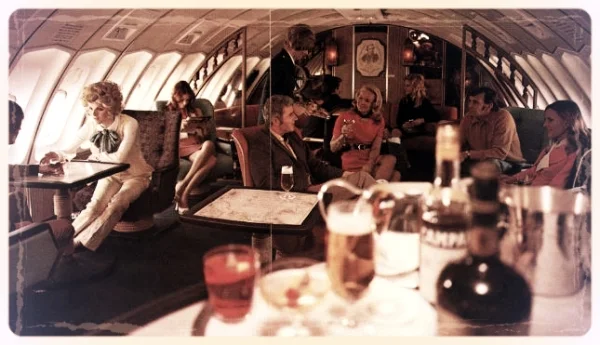Killjoy Was Here
Eric Burns: The Spirits of America
National Review, December 30, 2003
Abraham Lincoln, a wise man and a brave one too (he was speaking to the sober souls gathered at a meeting of a Springfield temperance society), once said that the damage alcohol can do comes not "from the use of a bad thing, but from the abuse of a very good thing." Drunkenness, not drink, was the real demon. Sensible words; yet, in their dealings with the bottle, his countrymen still lurch between wretched excess and excessive wretchedness. Moderation remains elusive. After the binging, there's always the hangover: dreary years of finger-wagging, sermonizing, and really, really dumb laws. Just ask poor Jenna Bush. Spirits of America, Eric Burns's entertaining history of the impact of an old pleasure on a new world, is rather like a Washington State cabernet sauvignon, unpretentious and thoroughly enjoyable. Burns, the host of Fox News Watch, is not a professional historian. His prose is engaging and relaxed, written in the rhythms of an accomplished raconteur rather than the jargon of the academic. In short, this book is about as dry as a colonial tavern.
To Burns, it's not surprising that the first settlers, as strangers in a strange and not always hospitable land, should have turned to drink: to beer, to whisky, to brandy, to rum, and even to an alarming-sounding series of proto-cocktails. Rattle-skull, anyone? Reading his account, it's easy to conclude that many of these early Americans spent most of the day drunk, proving once again (at least to this Brit) that they cannot have known what they were doing when, after a revolution fomented largely in those same taverns, they broke from the embrace of the mother country.
Needless to say, all this good cheer produced a reaction, and the greater (and most interesting) part of this book is devoted to prohibitionists and their long, far from fine, whine. It's a painfully familiar tale to anyone who has watched the drug war, the excesses of the anti-tobacco movement, or even the gathering fast-food jihad.
The parallels are telling. There's the junk science so shaky that, by comparison, "passive smoking" is as believable as gravity. Dr. Benjamin Rush, "the Hippocrates of [18th-century] Pennsylvania," linked drink to a wide range of health problems including scurvy, stomach rumblings, and, for the truly unlucky, spontaneous combustion. Around a hundred years later—and a century before the nonsense of DARE—the Woman's Christian Temperance Union was distributing an "education" program in schools that included the startling news that alcohol could lead "the coats of the blood vessels to grow thin [making them] liable at any time to cause death by bursting." Boozehounds should also watch out. Children were taught that even a tiny amount of this "colorless liquid poison" would be enough to kill a dog,
Like their successors today, these campaigners understood the uses of propaganda. Even the choice of that soothing word "temperance" (which ought to mean moderation, not abstinence) was, as Burns points out, nothing more than spin before its time. No less disingenuously, the name of the influential Anti-Saloon League camouflaged prohibitionist objectives far broader than an attack on the local den of iniquity, a technique that may ring a bell with those who believe that MADD is now straying beyond its original, praiseworthy, agenda.
Above all, what is striking is how, then as now, the zealots of abstention were unable to resist the temptation of compulsion. Burns is inclined to attribute the best of intentions to the "temperance" campaigners. He's wrong. The fact is that neither persuasion, nor education, nor even psychotic Carry Nation's hatchet was enough to satisfy the urge to control their fellow citizens that played as much a part in the psychology of teetotalitarianism as any genuine desire to improve society. From the Massachusetts law providing that alcohol could not be sold in units of less than fifteen gallons to the grotesque farce of Prohibition, Spirits of America is filled with tales of legislation as absurd as it was presumptuous.
Although he never holds back on a good anecdote (the story of Izzy Einstein, Prohibition Agent and master of disguise, is by itself worth the price of this book), when it comes to the Volstead years themselves. Burns gives a useful and, dare I say it, sober, account. Contrary to machine-gun-saturated myth, the mayhem (if not the corruption) was mostly confined to a few centers, and although Prohibition did clog up the justice system, enforcement, mercifully, usually tended to be less than Ness.
Even more surprisingly, while he doesn't come close to endorsing Prohibition, Bums is able to point to data showing that, in certain respects at least, the killjoy carnival was a success: Per capita alcohol consumption fell sharply, as did the incidence of drink-related health problems. But even these achievements may mean less than is thought. Other evidence (not cited by Burns) would suggest that, after an initial collapse, consumption started to rise again as new (illicit) suppliers got themselves organized, with often disastrous consequences for their customers. Winston Churchill, no stranger to the bottle himself, was told that "there is less drinking, but there is worse drinking," a phrase, incidentally, that almost perfectly describes the impact on today's young of the increase in the drinking age to 21. As for the alleged health benefits, the 1920s also saw notable reductions in. for example, deaths from alcoholism and cirrhosis of the liver in Britain, a country that saw no need for prohibition.
What Burns underplays, however, is the fact that this debate should be about more than crudely utilitarian calculations. There's a famous comment (cited by Burns, but, sadly, quite possibly a fake) widely attributed to Lincoln that sums this up nicely. Prohibition, "a species of intemperance in itself . . . makes a crime out of things that are not crimes. [It] strikes a blow at the very principles upon which our Government was founded."








